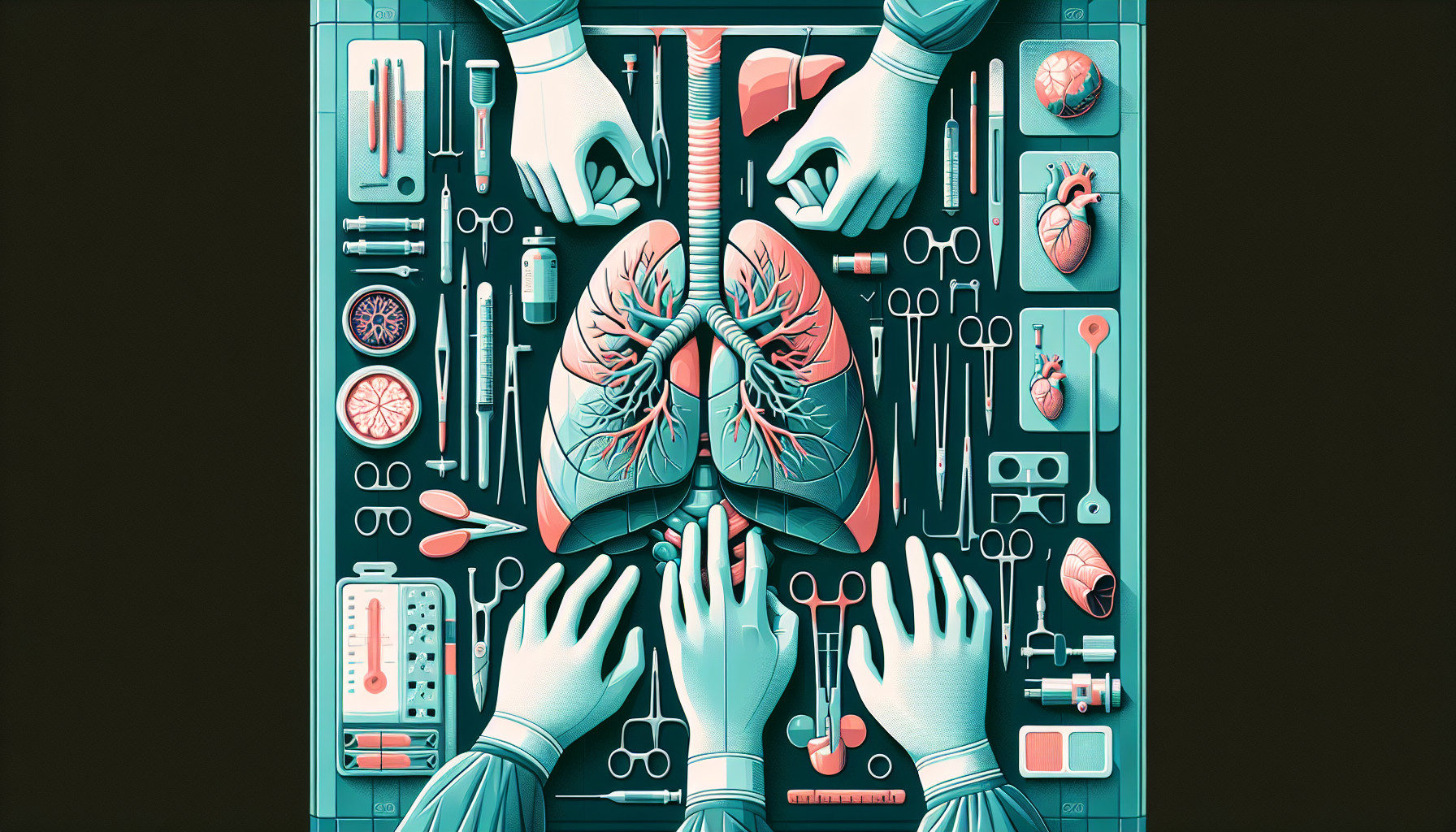Our Summary
This research paper is about a study that was conducted to evaluate the effectiveness of a drug called lidocaine on patients recovering from a specific type of lung cancer surgery (thoracoscopic radical resection). The study involved 70 patients, who were divided into two groups. One group was given lidocaine before and during the surgery, while the other group (the control group) was given a saline solution.
The researchers looked at several different factors to assess the patients’ recovery, including a score that measures the overall quality of recovery, various measures of lung function, and the time it took for patients to pass gas and have a bowel movement after surgery.
The results showed that the patients who were given lidocaine had a better overall recovery than those who were not. They also had better lung function and were able to pass gas and have a bowel movement more quickly.
The conclusion of the study is that lidocaine can improve the recovery process for patients undergoing this type of lung cancer surgery, and it may also help protect the lungs during and after the operation.
FAQs
- What was the purpose of the study on the drug lidocaine in relation to lung cancer surgery?
- What were the results of the study regarding the use of lidocaine on patients recovering from thoracoscopic radical resection?
- How does lidocaine potentially aid in the recovery process for patients undergoing thoracoscopic radical resection?
Doctor’s Tip
One helpful tip a doctor might give a patient undergoing lung resection is to follow the post-operative care instructions provided by the medical team. This may include instructions on how to properly care for the surgical incision, when to resume physical activity, and any medications that need to be taken. It is important to follow these instructions closely to ensure a smooth and successful recovery. Additionally, maintaining a healthy lifestyle, including quitting smoking if applicable, eating a balanced diet, and staying active, can also help support the healing process after lung resection surgery.
Suitable For
Patients who are typically recommended lung resection are those with early stage lung cancer, tumors that are localized and have not spread to other parts of the body. Lung resection may also be recommended for patients with certain benign lung tumors, lung infections, or advanced emphysema. Additionally, patients with lung abscesses, bronchiectasis, or certain types of lung nodules may also be candidates for lung resection.
Patients who undergo lung resection should be in good overall health and have adequate lung function to tolerate the surgery. They should also have a strong support system in place to help with their recovery process. It is important for patients to discuss the risks and benefits of lung resection with their healthcare provider to determine if it is the best treatment option for their specific condition.
Timeline
Before lung resection:
- Patient undergoes preoperative evaluation and testing to assess their overall health and determine if they are a suitable candidate for surgery.
- Patient meets with their surgical team to discuss the procedure, potential risks and benefits, and what to expect before, during, and after surgery.
- Patient may need to undergo additional tests or procedures to prepare for surgery, such as chest imaging, pulmonary function tests, and blood work.
- Patient may be instructed to stop certain medications, such as blood thinners, in the days leading up to surgery.
- Patient may need to follow specific instructions regarding fasting before surgery, typically starting at midnight the night before the procedure.
After lung resection:
- Patient wakes up in the recovery room (post-anesthesia care unit) immediately after surgery, where they are closely monitored by medical staff.
- Patient may have a chest tube in place to help drain fluid or air from the chest cavity.
- Patient may experience pain or discomfort at the incision site and may be given pain medication to manage it.
- Patient is encouraged to get up and walk around as soon as possible to prevent complications such as blood clots and pneumonia.
- Patient is monitored for signs of infection, respiratory complications, and other potential postoperative issues.
- Patient may be discharged from the hospital once they are stable and able to manage their pain at home.
- Patient will have follow-up appointments with their surgical team to monitor their recovery, assess lung function, and address any concerns or complications.
What to Ask Your Doctor
Some questions a patient should ask their doctor about lung resection, particularly in relation to the use of lidocaine during surgery, include:
- What are the potential benefits of using lidocaine during my lung cancer surgery?
- Are there any risks or side effects associated with the use of lidocaine in this context?
- How will lidocaine be administered during the surgery, and for how long?
- Will the use of lidocaine impact my post-operative pain management or recovery process?
- How will the effectiveness of lidocaine be monitored during and after the surgery?
- Are there any specific precautions or considerations I should be aware of if I am given lidocaine during the surgery?
- Are there any alternative medications or approaches that could be used instead of or in conjunction with lidocaine for my surgery?
- How does the use of lidocaine in lung resection surgery compare to other pain management or recovery strategies?
- What is the expected timeline for my recovery if lidocaine is used during the surgery?
- Will the use of lidocaine have any long-term effects on my lung function or overall health?
Reference
Authors: Wang L, Sun J, Zhang X, Wang G. Journal: Drug Des Devel Ther. 2021 Apr 7;15:1485-1493. doi: 10.2147/DDDT.S297642. eCollection 2021. PMID: 33854301
